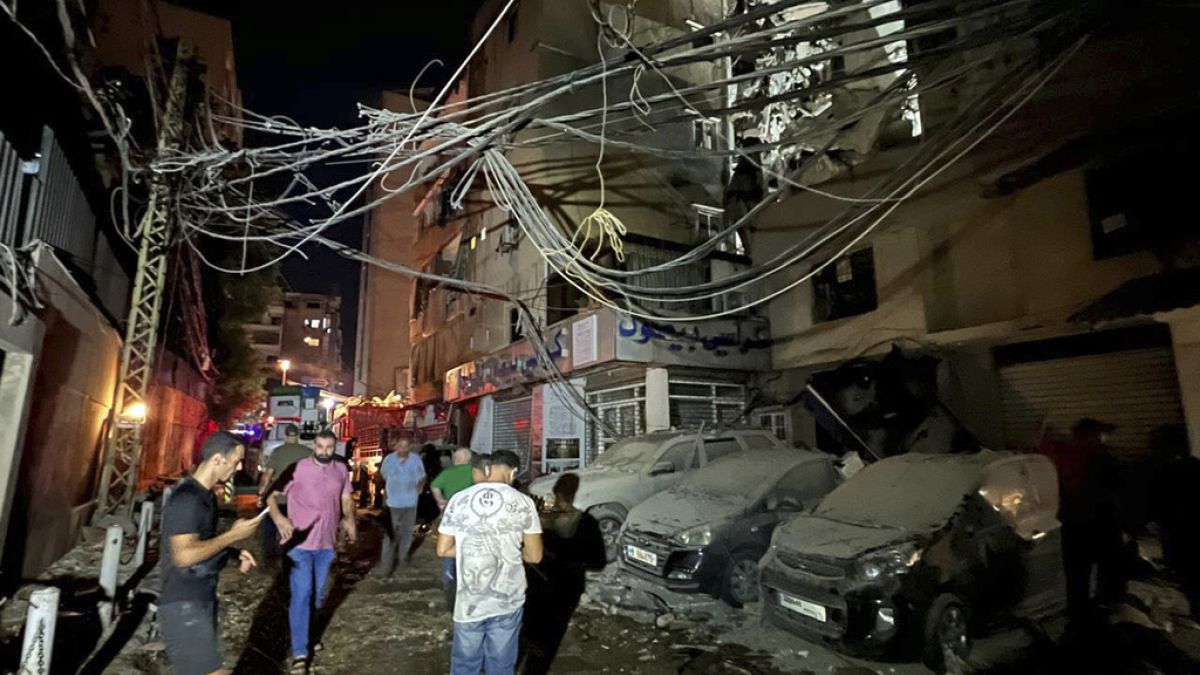On Wednesday morning, Beirut residents woke up to the aftermath of a rare Israeli strike on their city. Buildings were damaged, and workers were busy clearing rubble from the streets. The strike, which took place on Tuesday, targeted a top Hezbollah commander who was allegedly responsible for a rocket attack that killed 12 young people in the Israeli-controlled Golan Heights over the weekend.
The strike resulted in the death of at least one woman and two children, and dozens of people were injured. This incident has escalated tensions between Israel and Hezbollah, as the militant group has vowed to retaliate for the killing of their commander. The situation in the region remains tense, with fears of further violence looming large.
The Israeli strike on Beirut has raised concerns about the potential for further escalation in the region. The Lebanese government has condemned the attack and called for restraint from all parties involved. However, the situation remains volatile, with both Israel and Hezbollah trading threats and accusations in the aftermath of the strike.
The international community has called for calm and de-escalation in the region, fearing that the situation could spiral out of control. The United Nations has urged all parties to exercise restraint and avoid any actions that could lead to further violence. Diplomatic efforts are underway to try and calm tensions and prevent a wider conflict from erupting.
The strike on Beirut has also raised questions about the broader implications for regional stability. The incident comes at a time of heightened tensions in the Middle East, with conflicts raging in Syria, Yemen, and Libya. The situation in Lebanon remains precarious, with the country already grappling with political and economic crises.
As Beirut residents continue to assess the damage and workers clear rubble from the streets, the city remains on edge. The Israeli strike has left a trail of destruction and raised fears of further violence in the region. The coming days will be crucial in determining whether the situation can be de-escalated or if it will continue to deteriorate, leading to more bloodshed and instability in the already volatile Middle East.











